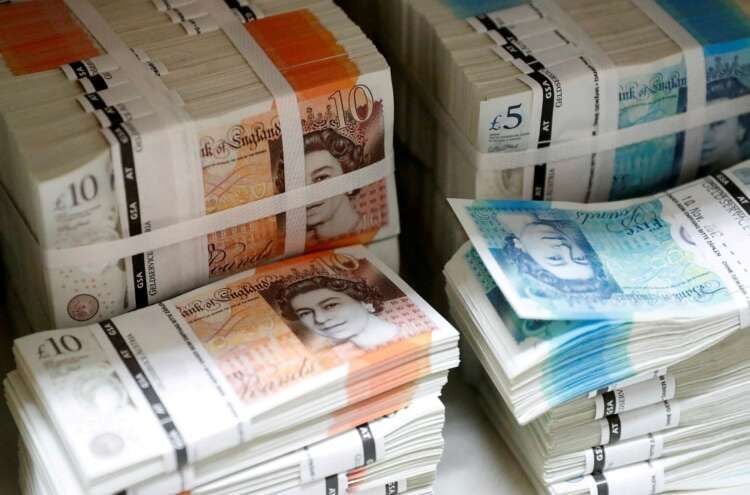Published by Wanda Rich
Posted on April 25, 2022

Global Banking and Finance Review is an online platform offering news, analysis, and opinion on the latest trends, developments, and innovations in the banking and finance industry worldwide. The platform covers a diverse range of topics, including banking, insurance, investment, wealth management, fintech, and regulatory issues. The website publishes news, press releases, opinion and advertorials on various financial organizations, products and services which are commissioned from various Companies, Organizations, PR agencies, Bloggers etc. These commissioned articles are commercial in nature. This is not to be considered as financial advice and should be considered only for information purposes. It does not reflect the views or opinion of our website and is not to be considered an endorsement or a recommendation. We cannot guarantee the accuracy or applicability of any information provided with respect to your individual or personal circumstances. Please seek Professional advice from a qualified professional before making any financial decisions. We link to various third-party websites, affiliate sales networks, and to our advertising partners websites. When you view or click on certain links available on our articles, our partners may compensate us for displaying the content to you or make a purchase or fill a form. This will not incur any additional charges to you. To make things simpler for you to identity or distinguish advertised or sponsored articles or links, you may consider all articles or links hosted on our site as a commercial article placement. We will not be responsible for any loss you may suffer as a result of any omission or inaccuracy on the website.
(Reuters) -Sterling fell on Monday to its lowest level since September 2020 against a strengthening dollar, while money markets scaled back their bets on future monetary policy tightening by the Bank of England (BoE).
The dollar climbed to a two-year high versus a basket of major trading partner currencies and was on track for its single biggest daily gain in more than six weeks as a wave of risk aversion swept through global markets, boosting the greenback’s safe-haven appeal.
Money markets are pricing around 150 basis points (bps) of BoE interest rate hikes by the end of this year, including more than 25 bps at next week’s policy meeting, from 160 bps on Friday. [IRPR]
The BoE seemed mainly worried about risks of a possible recession and a slowdown in the labour market, analysts said after comments from BoE Governor Andrew Bailey last week.
Analysts last week pointed to risks of a possible political crisis as lawmakers triggered an investigation into whether British Prime Minister Boris Johnson had misled the country’s parliament over gatherings at Downing Street during the pandemic lockdown. After apologising for his conduct, Johnson denied deliberately misleading parliament, a charge that would increase pressure on him to resign.
Optimism among British manufacturers in the three months to January fell at its fastest pace since the onset of the COVID-19 crisis as orders slowed and prices jumped, a survey showed on Monday, adding to signs of an economic slowdown.
“While dovish comments from the BoE continue to weigh, today’s moves are mainly about a risk-off environment that is boosting the safe-haven assets at the expense of higher-risk currencies,” said Matthew Ryan, senior market analyst at Ebury.
“Markets appear concerned about new lockdowns in China, Fed monetary tightening, and their impact on the economy,” he added.
The pound was down 0.8% to $1.2731 in afternoon trading after earlier hitting $1.2706, its lowest mark since September 2020. On Friday it suffered its biggest daily drop since September 2020.
“Risks of a dovish repricing in the BoE rate expectations and potentially some re-emergence of negative Brexit-related headlines continue to pose downside risks to the pound in the coming weeks, and a test of the 1.2500 support cannot be excluded,” ING analysts said in a research note.
Britain does not rule out taking further steps to address problems in Northern Ireland caused by post-Brexit arrangements, Johnson said on Friday.
The pound was flat versus the euro at 84.31 pence, after hitting its lowest level since April 1 at 84.37.
(Reporting by Stefano Rebaudo, Editing by Paul Simao)